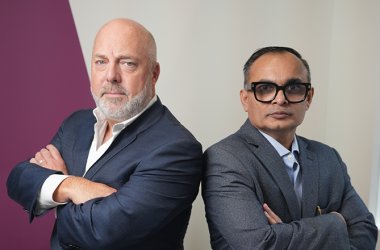
Sandhya D’Mello spoke to Moscow-headquartered, Mena Regional Director, of Positive Technologies, Ilya Leonov, who is focused on protecting critical infrastructures and enabling organisations to invest smarter in cybersecurity solutions.
What key products and solutions are you presenting at your stand?
This year, we’ve brought a lot of innovative solutions, which we’ve divided into several key domains. The first is application security, which is crucial, particularly for the financial industry and commercial organisations. Financial motivation remains a top priority for threat actors. The second area is industrial cybersecurity, especially within operational technology (OT) environments, which are critical on a national level for states and countries. Through our Threat Resource Center, we conduct numerous reports and investigations, and we’ve seen industrial systems become major targets for hacktivists and other actors looking to cause harm. Therefore, we are introducing several innovations in this domain. Additionally, we’re launching a managed security program for our partners, as there is growing demand for services, and we’re aiming to support them with a managed services platform.
How many channel partners does Positive Tech have here? Do you mainly deal through your channel partners, and how many do you have currently?
We follow a standard two-tier model with distributors and partners. As of now, we have three large distributors covering the entire region. In terms of partners, we work with a variety of companies, such as system integrators, managed security service providers, and other service companies. In total, we have over 100 partners in the region.
With so much digital transformation happening, launching innovative solutions is great, but are organisations ready to handle the growing demand for industrial cybersecurity?
On one hand, we have critical industrial systems like oil and gas, electricity, and nuclear power, which are vital national infrastructures. On the other hand, we see that the security measures for these systems are still quite basic, primarily because of their critical nature and the complexity involved in implementing fine-tuned solutions—especially in places like nuclear plants. This is why we bring our expertise, with over 20 years of experience protecting critical environments, at a national level. We have a solid portfolio that has been tested in critical infrastructures, and we are eager to share this knowledge.
When discussing industrial cybersecurity, it often requires significant investment to adopt the latest technologies and solutions. Do you think companies are prepared to make these financial commitments?
Investment in cybersecurity isn’t just about buying certain solutions or technologies. It has to be reasonable and efficient for the company. It’s important that any investment delivers the expected level of protection. We have local regulations from entities like central banks and government bodies, which companies need to comply with. But the key question remains: even after fulfilling these requirements, are they truly protected? Are their resources being used effectively? That’s why we follow a “result-driven cybersecurity framework,” which ensures that investments are efficient and provide the required security outcomes.
How do you view the UAE’s approach to adopting the latest industrial cybersecurity solutions? Is the country at the forefront of these developments?
The UAE is one of the top countries in the region that is implementing AI and machine learning technologies for critical infrastructure, including industrial cybersecurity. They are doing a great job, and other territories can definitely learn from their experience and expertise in this area.
Outside of AI, what other trends do you see emerging in the technology landscape, especially in the field of industrial cybersecurity, as we move toward 2025?
One major trend we foresee is the development of comprehensive, 360-degree coverage for the OT environment. Currently, we see fragmented coverage in industrial systems—certain areas are well-protected, while others are not. We aim to bring holistic solutions to the table. This includes building Security Operations Centers (SOCs) for industrial systems and providing security assessment services to ensure the effectiveness of security measures. Additionally, we’re focusing on automating repetitive security tasks using systems like autopilots, allowing security analysts to focus on more complex, intelligent threat-hunting tasks.
Which industries are you specifically targeting with your industrial cybersecurity solutions?
We’re focusing on industries with critical OT environments, such as oil and gas, electricity, nuclear power, transport, and mining. Healthcare is also a priority, as medical machines form a complex and critical infrastructure that requires specialised cybersecurity measures.
Image Credit: Positive Technologies





